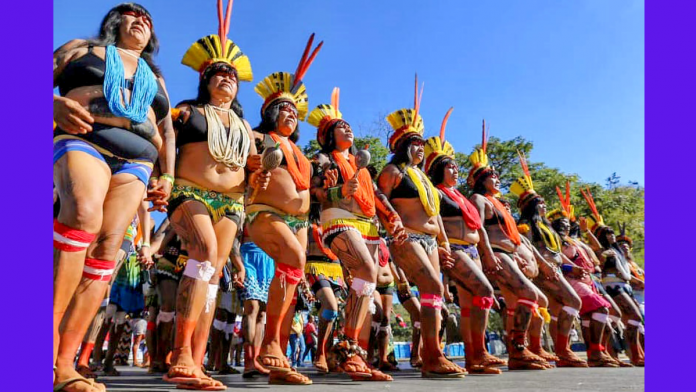News in brief: Brazil Senate Agriculture Committee has endorsed legislation that denies recognition of Indigenous lands, with a condition that these lands would revert to government control if not inhabited by 1988. Backed by the influential farm lobby, the bill aims to end land conflicts and establish legal security for settlers, potentially enabling them for commercial agriculture.
Agriculture Senate Committee of Brazil have voted to approve legislation that would rule out recognition of Indigenous lands, a news source says.
The legislative proposal, however, comes with the condition that such lands would be forfeited to government if they were not lived on by 1988.
Legislators voted 13-3 in favour of the bill. Brazilâs powerful farm lobby are backing the bill, which is expected to advance to the Constitution and Justice Committee. Although, it could be put to a vote in plenary in the coming week.
Minster of Brazilâs Indigenous Peoples, Sonia Guajajara, said rural interests in Congress were rushing the bill through before the countryâs Supreme Court can rule whether the 1988 cut-off date violates a constitutional guarantee of Indigenous rights to their ancestral lands.
She said the debate is being widened and urged the Senate to also discuss the bill in the human rights and the environment committees.
Senators from farm states highlighted the importance of the legislation, which could potentially end land conflicts with indigenous communities. They added that it was significant because it would help to establish legal security for settlers.
Brazilâs 1.6 million Indigenous People own at least 13.8% of the countryâs territory protected as reservation lands. The bill could allow commercial agriculture, including the use of genetically modified crops which are currently under ban, in Indigenous territories, for the first time, if it passes into law.
The bill aims to stop the recognition of new reservations on lands claimed by Indigenous people, who were not living in such lands at the time of the formation of Brazilâs constitution in 1988. It will also allow the expropriation of protected land if an indigenous community lost its cultural traits.
Guajajara said the bill would permit easier access to territories where isolated or recently contacted tribes are known to live in the Amazon. She hopes that Brazilâs President, Luiz Inacio Lula da Silva, will veto the bill if it passes Congress.
However, she is not optimistic and expressed doubt that the president will be willing to go against farm and agribusiness stakeholders, whose food exports are the backbone of Brazil’s economy.â



